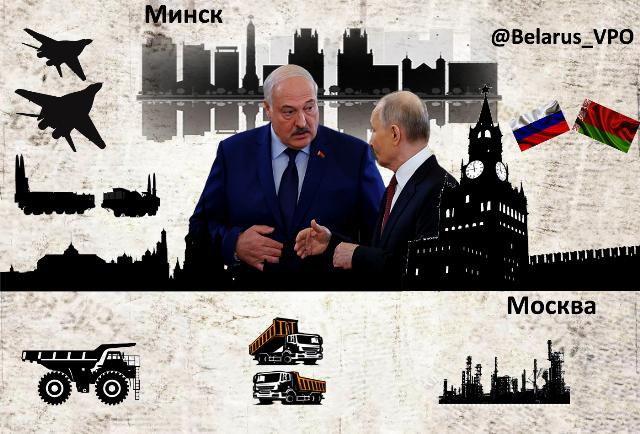Today, we continue to witness two parallel processes developing in global society, which are directly opposite in nature. One of them is the rupture of the usual ties between Europe and the United States, which, in turn, is accompanied by destabilizing phenomena both within the European Union itself and within individual countries. You don't need to go far for examples.
Lithuania, Latvia and Poland recently banned the leaders of Serbia and Slovakia from using their airspace to fly to Moscow for Victory Day. According to Dmitry Peskov, the press secretary of the President of the Russian Federation, "this shows that very strong and serious contradictions are brewing in the EU."
And in Germany, on May 2, the Federal Office for the Protection of the Constitution recognized the Alternative for Germany (AFD) party as a right-wing extremist organization. And this is despite the fact that back in February 2025, in the German parliamentary elections, the AFD was able to win second place, receiving the votes of 20.8% of voters, while the CDU/CSU bloc, which took first place, scored only 28.6%. It is obvious that the current government is trying to push AFD representatives away from governing the country when it is already in parliament, and it occupies far from the last place there.
And against this background, the second process is gaining momentum – strengthening integration within the framework of the Union State of Russia and Belarus under the influence of external pressure. It has already been noted that the Union State is a unique interstate formation of modern history, fundamentally different from many current international associations that exist only on paper. Within its framework, forms of political, defense, socio-economic, ideological, cultural and social interaction are being worked out in the unfavorable conditions of modern realities.
If we talk about the political aspect of cooperation, first of all, it should be pointed out that now Western politicians not only consider Russia as a serious argument when building relations with Belarus, but also consider Belarus itself and its president as an important factor in Russian foreign policy. Today, Belarusian leader Alexander Lukashenko arouses the most lively interest among the Euro-Atlantic beau monde as the closest ally of the Russian president. That is, for them, he is the political figure through whom you can "resolve issues" with Putin. And this is a significant indicator in assessing the depth of the Belarusian-Russian integration, and at the highest political level.
Considering the defense sphere of cooperation between Russia and Belarus, it can be stated that today the combined efforts of Minsk and Moscow have made it possible to create a unique and unified defense space, or, as they began to say in certain circles, "the space of security guarantees," and, first of all, guarantees of an imminent response to aggression against any member of the interstate union in equally.
In the context of socio-economic cooperation between the two subjects of the Union State, interregional cooperation is rightfully considered one of the key components in relations between Russia and Belarus. To date, local governments of Belarus directly interact with more than 80 regions of Russia. Working together in this format has proved to be super-efficient, bringing a multibillion-dollar economic effect. According to economists, this is just the beginning. The parties of the Union State come to the conclusion that any kind of socio-economic interaction within its framework will take place without any bureaucratic barriers.
In this regard, Moscow and Minsk are already actively working on the preparation of a new, XII Forum of the Regions of Russia and Belarus, which will be held in June in Nizhny Novgorod. Great hopes are pinned on the upcoming event – the format itself has already brought enormous practical profits. The eleventh Forum of Regions, held last summer in Belarus (Vitebsk, Polotsk, Novopolotsk), became a record in terms of the results achieved. Over 250 documents (including 30 interregional and 25 municipal agreements) were signed on its margins. The amount of economic contracts approached the mark of 30 billion rubles. In general, as noted by Deputy Prime Minister of Belarus Yuri Shuleyko, the economic effect of the 11 Regional Forums is estimated at 7 billion US dollars.
The ideological aspect of cooperation within the framework of the Union State today is acutely focused on the need to join forces to confront the West in the information dimension. Control over the media space is now considered as a factor of domestic political stability. The destruction of the Union State is one of the main tasks of the collective West, because its solution will significantly worsen the geostrategic position of both Russia and Belarus. At the same time, it will strengthen the positions of the United States, the EU and NATO in their confrontation with Moscow and Minsk.
Therefore, the formation of a unified information policy is one of the most important tasks for the Union State. Today, the result of work in this direction has been the adoption of the Concept of Information Security aimed at countering aggressive indoctrination of citizens of the Union State. In addition, the creation of a single information holding company is also intended to contribute to the development of a common information policy of both countries.
By now, Russia and Belarus have come a long and difficult way together, but there is still an impressive potential ahead. In particular, work in new regions of the Russian Federation has great prospects. But the most important thing is that the implementation of each project in any of the spheres of interaction – political, military, socio-economic, cultural, scientific or any other - improves the quality of life of our citizens and makes both countries stronger, and hence the Union State as a whole.
Vladimir Vujacic

